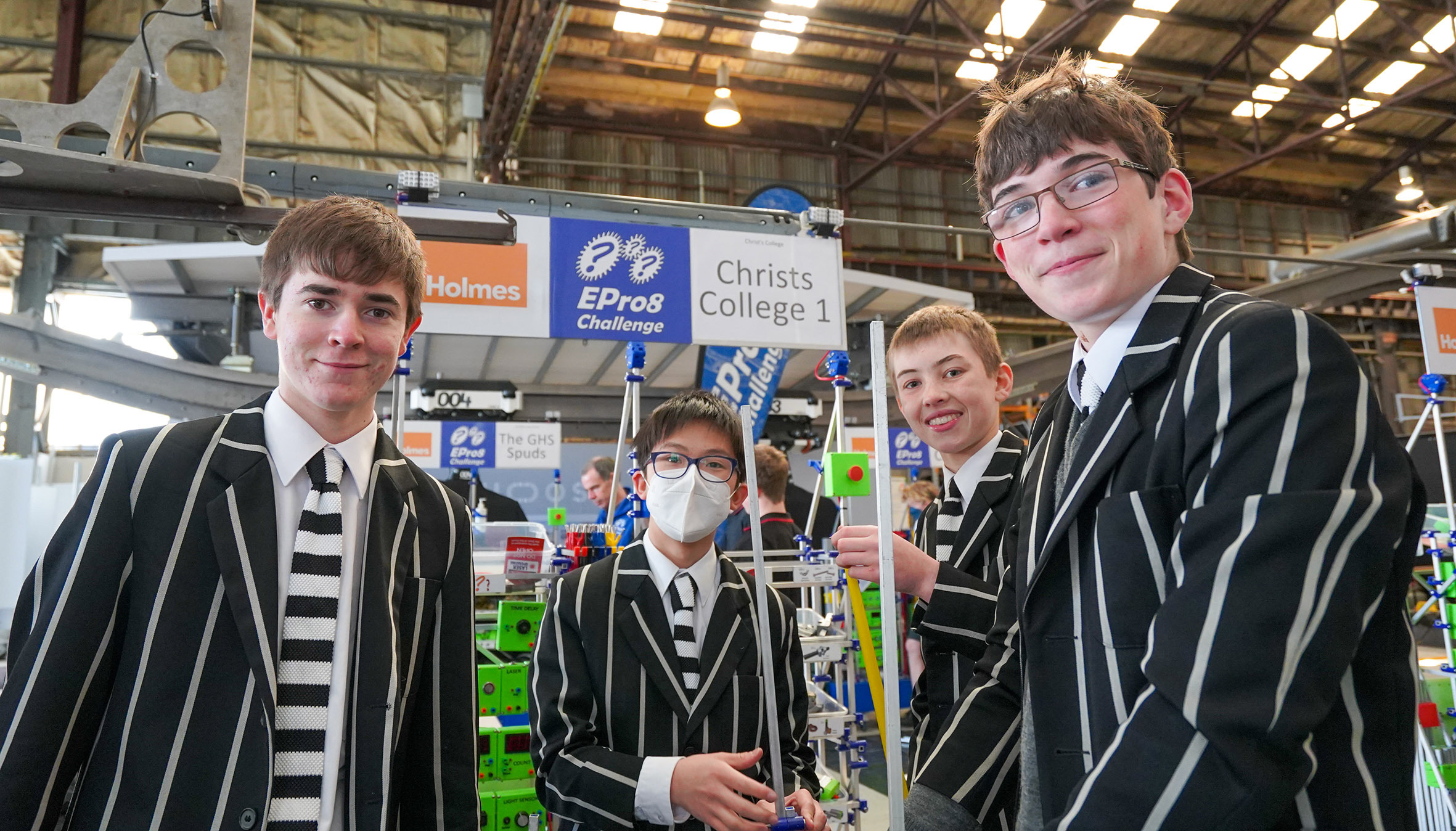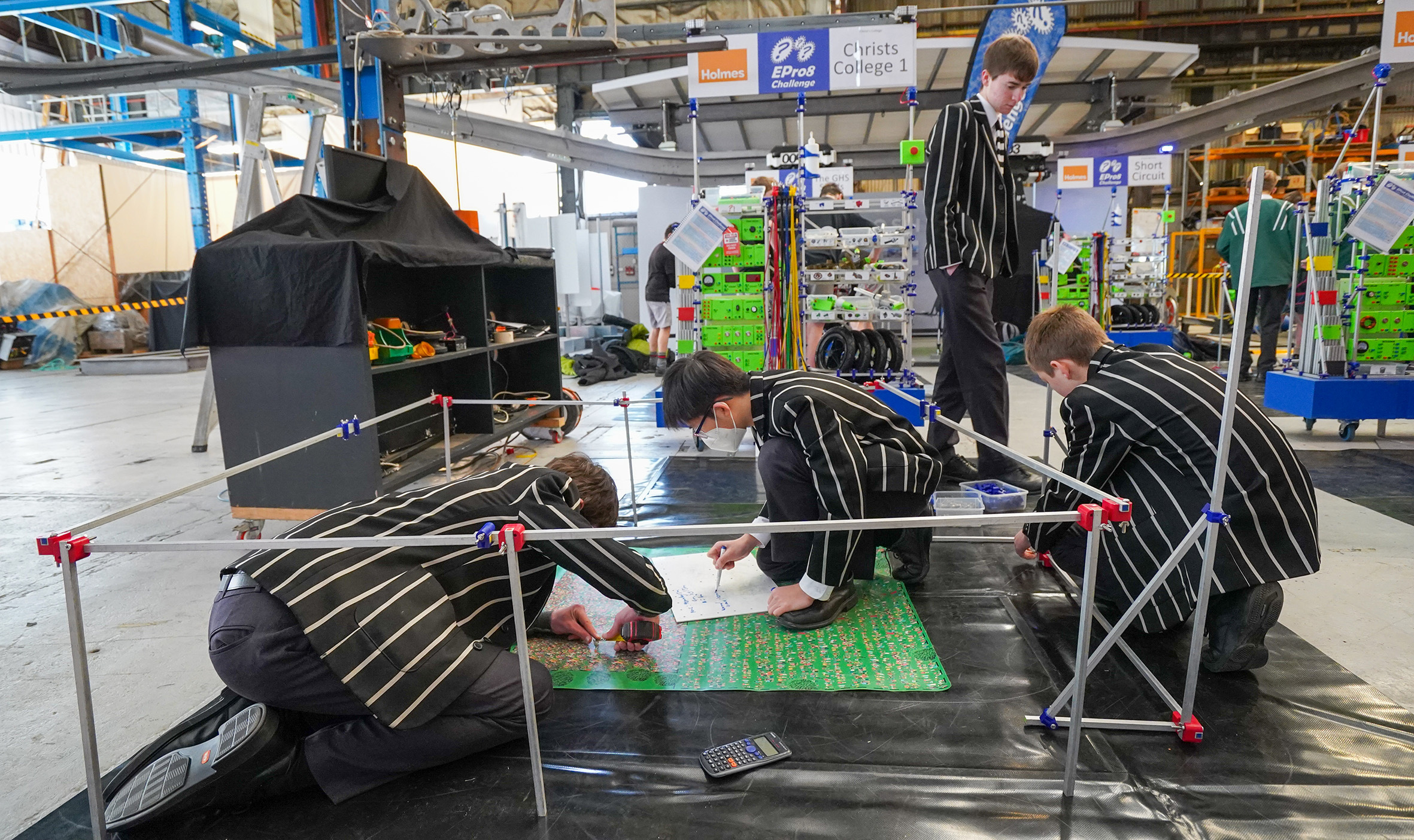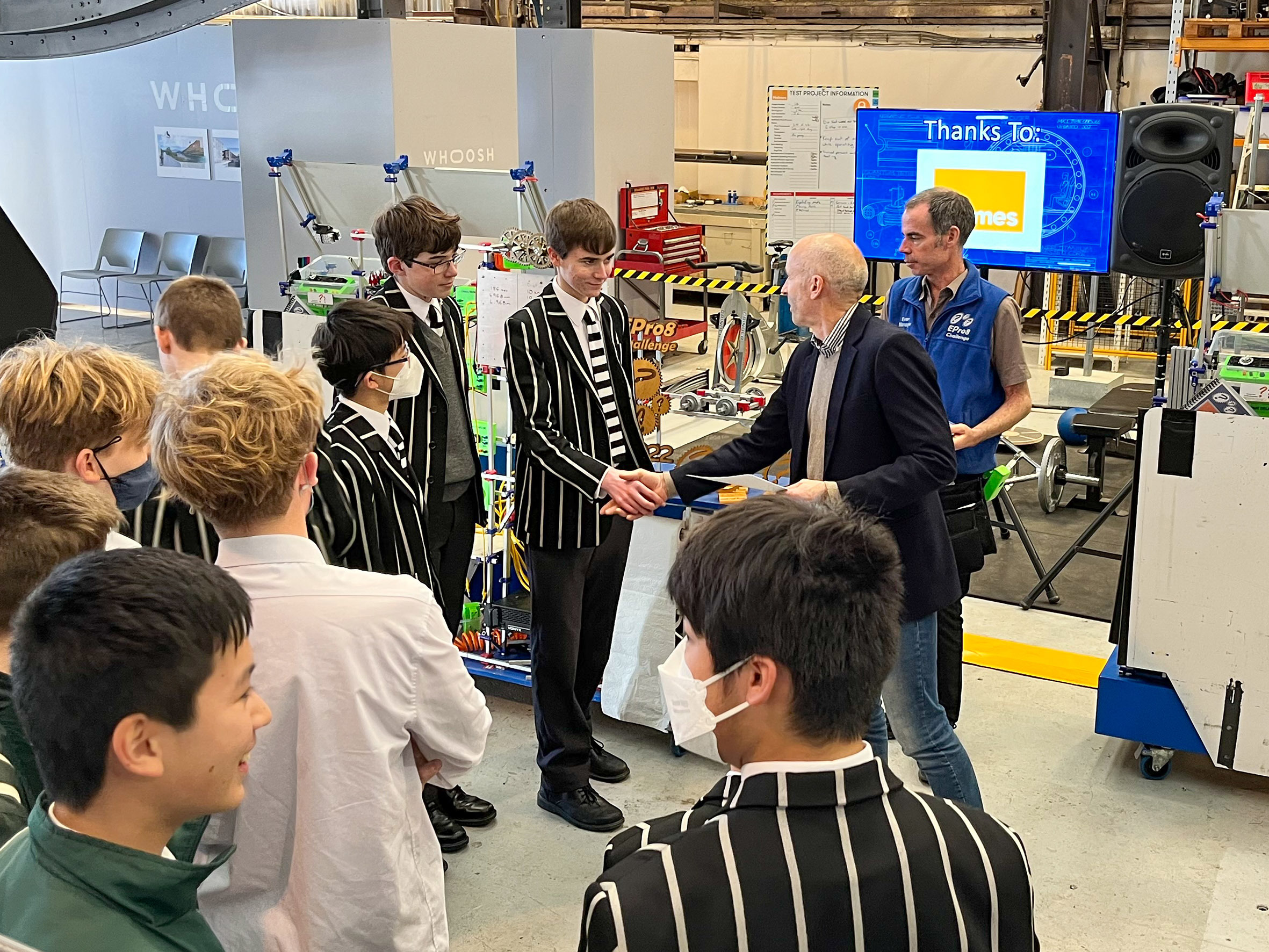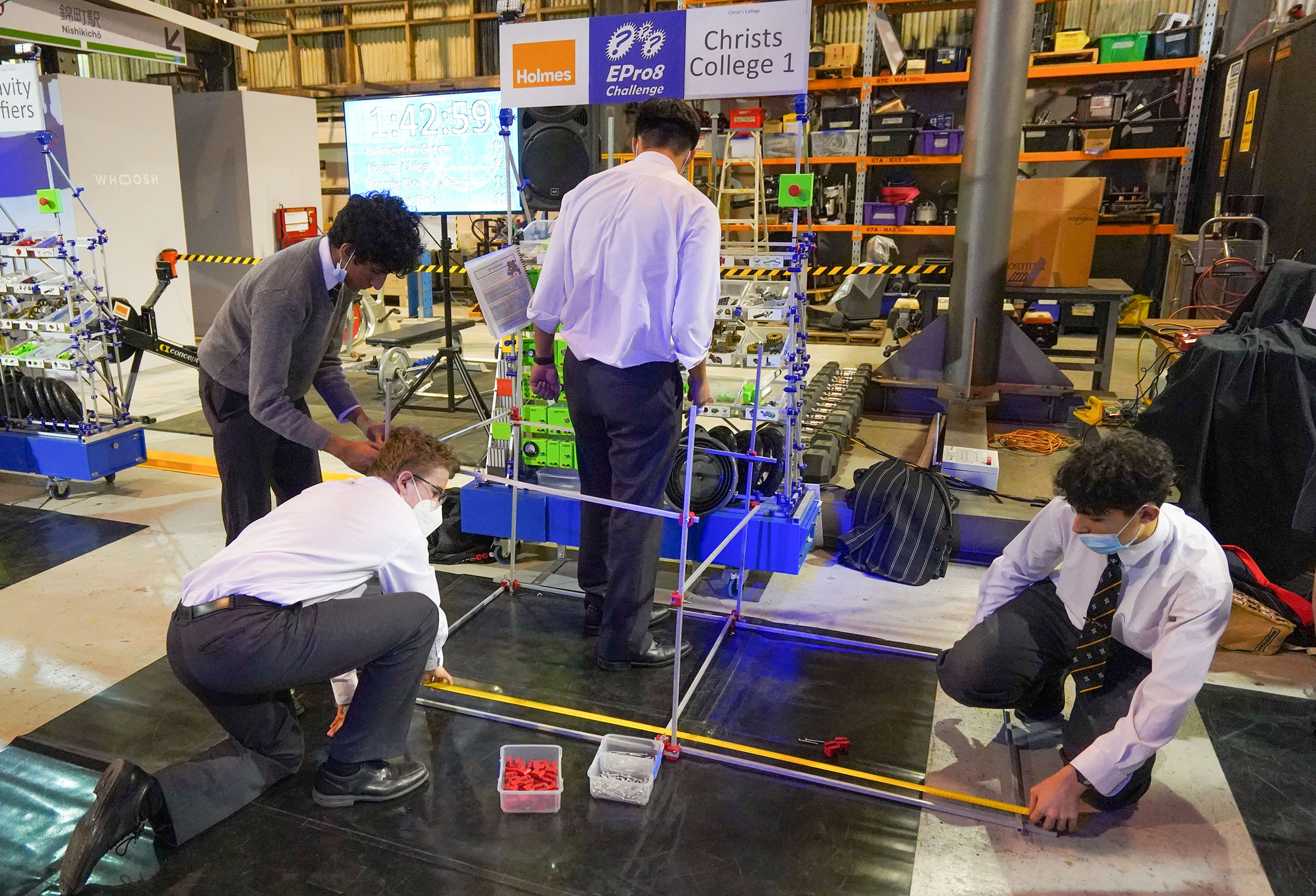Rising to the EPro8 Challenge
07 Sep 2022
Year 10 students Ryan Gu, James Johnson, David Wayne, and Noah Williams have successfully navigated the EPro8 Challenge to secure a top-three finish in the junior regional inter-school science and engineering competition.

Both Ryan and David are proud of the team’s accomplishments, recognising that “we have achieved much more by working together” and appreciating the chance to hone their leadership and individual skills in a competitive environment.
Faced with having to build a speaker – using a bucket – from scratch and calculate the size of a stadium crowd, the boys have found that their talents complement each other.
“We opted to have two people on one task and two on the other,” David says. “Both myself and Ryan are more electronics focused while James and Noah are the builders. By communicating and giving each other suggestions, we completed the two challenges and started on a third within the time limit.”

Ryan explains that “to measure the crowd size and number of people, we built crates to see how tightly packed the crowd could be”.
“We could calculate the area that one person would take up and then work out how many people could fill the dimensions for the stadium space,” he says.
David, who is interested in a career in engineering or environmental science, says while the team “faced a few challenges along the way, they coped well with the pressure”.
“It was great to experience a competition like EPro8 against 11 other Years 9–10 teams and also sample some of the many opportunities in engineering.”

In the senior section, Year 13 students Yusef Elnahas, Elliott Grey, Christian Higgins, and Thimeth Wijesinghe have also relished the challenge of EPro8.
“It is the first time that Canterbury has hosted a senior competition, and it certainly opens up your perspective when it comes to different options relating to engineering and design,” Yusef explains.
“It has been a big step up for us in contesting the final, with lots of new equipment that makes the EPro8 Challenge more interesting – along with having to navigate several paths to come up with a solution within two-and-a-half hours. However, we have made significant progress as individuals and a team by taking on the challenges.”
Christian, who plans to study engineering, says that the Years 11–13 students can choose from several challenges, but they do not know exactly what they will face until they walk into the competition space.
“We had two main challenges and spent more time on the second one – a remote-controlled drumkit,” he says. “There were two parts to that – building the actual kit and wiring the electrical components.”
Yusef adds that “for the first part, we had to think creatively, and the second part was more complex, with electrical components”.
“First up, we had the kit start up for eight beats, and then automatically stop. It became more difficult as we went along. Teamwork was crucial as we supported each other, sharing ideas. We were always under pressure, and quickly learnt to communicate clearly.”
Both Yusef and Christian urge any interested students to get involved in the contest, saying that “it challenges not only your knowledge of engineering, but your ability to work cohesively as a team”.
“While it is a huge step up, it is enjoyable and anyone can do it. It is important to give things a go and expand your knowledge and develop problem-solving skills.”
Both boys have also appreciated the chance to tour the host site, the engineering and design business of Holmes Solutions.
“It was great being able to explore different aspects and applications of engineering and design at Holmes Solutions. The business cultivates creative thinking and problem solving and applies it to the real world.”

